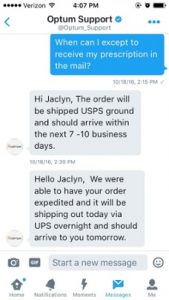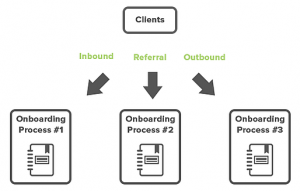
First, clients must trust you and your agency.
The owner of an agency asked me, “Why do marketing clients choose one agency over another?”
Creative, high-quality work? Sorry, clients expect that as a minimum. If a prospective client has worked with agencies before (which is preferable for you, so you don’t have to teach them how to be a good client), they’ll likely care about client service. But anyone can say anything about client service.
Clients hire agencies because they trust the agency. They need to trust you to do good work when they’re not in the room, put them first in the relationship, and trust that your fees are money well spent.
Impressions matter. Your client contact needs to trust that you’re going to make them look good to his or her boss and other stakeholders.
Build trust to win clients: 13 options
How can you build client trust? Follow these 13 tips to grow your agency faster and more profitably.
1) Specialize in the client’s industry.
They know you aren’t learning their industry on their dime. They also assume you’ll know shortcuts they don’t have yet. Here’s how to choose a vertical specialization.
2) Share relevant case studies.
Talk about specific, quantified results for work similar to their own—and share those quantified results. Limit case studies, when possible, to the type of work and clients you want to attract.
3) Use testimonials in your marketing.
Text is good; video is better. There’s no question the client said what they said. It also shows someone likes your agency enough to do a favor without a clear return.
4) Drop-in references to previous, similar work in casual conversations.
My approach is to keep all of that anonymous (e.g., “a client in Denver” or “a client in the U.K.”). This reinforces that you’re in demand and this isn’t your first rodeo, but don’t overdo it (no one likes a name-dropper).
5) Share a summary of your onboarding process and client service approach in general.
Demonstrate that you aren’t making it up as you go along.
6) Ask good questions along the way.
This shows them you want to understand their specific situation, instead of pushing a one-size-fits-all solution. Be a consultant, not a pushy salesperson.
7) Meet deadlines and manage expectations during the sales process.
Telling them you need an extra two days for a proposal “due to X” might work once, but that was your one chance. Deliver what you promise.
Not sure if you can make a promise? Tell them you’ll follow up by tomorrow with a clear answer.
8) Use a pre-kickoff survey to identify risk areas before you dive in.
Reconcile key differences from your pre-kickoff survey at the kickoff meeting. If clients decline to participate or don’t want to address differences, they either don’t trust you or they have internal dysfunction that’s going to explode later.
9) Share templates to make their life easier.
Share—and incorporate—your templates during the sales process. For instance, having a tool to reduce content delays. Show a sneak peak on your computer during your sales presentation.
If they ask for a copy, say something like: “These proprietary templates are for current clients only. Once we start, we’re glad to share this and others.”
10) Show that you’re dedicated to finding mutual fit, not closing the deal at any cost.
I start sales calls by saying my goal is to see if there’s a fit. If not, I’ll be glad to refer them elsewhere.
11) Share an occasional “strategically free” tip or other piece of advice.
Don’t overdo it, but don’t be totally stingy. Free advice here and there can help you seal the deal, if you frame it as strategically free.
12) Ensure your content marketing speaks directly to your target personas.
Prospective clients occasionally say it feels like I was writing directly to/for them. Trust is nearly automatic in those situations; it’s like they’re hiring a friend instead of a stranger.
13) Make sure you and your team are coordinated on commitments.
If anyone at the agency commits to something for the client, you’re now fully committed. Have a way to track these, get client signoff when needed, and tell certain people what they’re allowed to say or not say to clients.
No one should make promises on behalf of your agency unless they have authority to make those promises. Put on the spot, they can always say, “That’s a great idea. Before we do anything further, let me confirm with our PM first. I should have an answer by Wednesday.”
Which will you start doing?
If you’re ready to improve your agency, which of these tips will you apply? Which can you start doing in the next week? I look forward to hearing your results!
Business & Finance Articles on Business 2 Community(27)
Report Post








